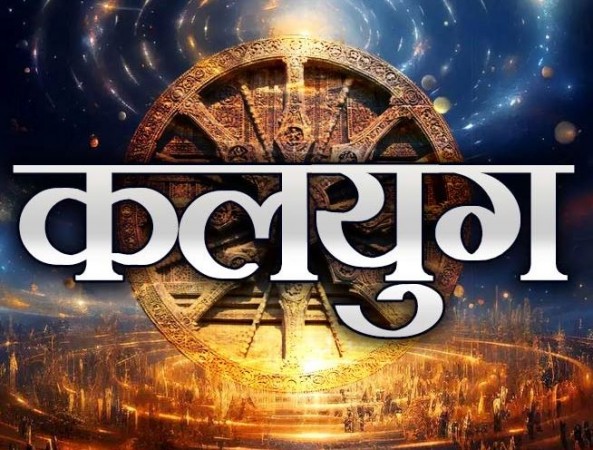
Hinduism, often revered as the oldest living religion, carries within it a rich tapestry of beliefs, practices, and profound philosophical insights that have evolved over millennia. Central to its teachings are the concepts of Yugas, or epochs, which describe the cyclical nature of time and the spiritual evolution of humanity.
According to traditional Hindu beliefs, the universe undergoes a continuous cycle of creation and destruction, with each cycle divided into four Yugas: Satya Yuga, Treta Yuga, Dvapara Yuga, and Kali Yuga. These epochs are believed to progressively decrease in spiritual purity and moral conduct as time moves forward.
Satya Yuga: Known as the Golden Age, Satya Yuga is considered the most spiritually pure epoch, lasting for 1,728,000 years. It is characterized by virtue, righteousness, and a deep connection between humanity and the divine.
Treta Yuga: The Silver Age follows Satya Yuga and lasts for 1,296,000 years. In Treta Yuga, righteousness begins to decline, but spiritual practices and knowledge still hold significant importance.
Dvapara Yuga: The Bronze Age lasts for 864,000 years and witnesses a further decline in moral conduct and spirituality. Rituals and sacrifices become more prominent, and the human connection with the divine diminishes.
Kali Yuga: The current epoch, Kali Yuga, is believed to have begun approximately 5,125 years ago. It is characterized by widespread moral and ethical decay, spiritual ignorance, materialism, and a deep disconnect from spiritual values. According to Hindu scriptures, Kali Yuga spans 432,000 years in total.
The Prophecy of Kalki Avatar:
In Hindu mythology, it is prophesized that during the darkest times of Kali Yuga, Vishnu, the preserver of the universe, will incarnate as Kalki, the final avatar. Kalki is envisioned as a warrior on a white horse, wielding a sword, coming to restore righteousness and order by vanquishing the forces of evil. His appearance marks the end of Kali Yuga and the beginning of a new Satya Yuga, symbolizing the renewal of spiritual wisdom and moral values.
Interpretations and Modern Relevance:
While traditional interpretations place the onset of Kali Yuga around 3102 BCE, modern scholars have debated its chronological accuracy, aligning it with astronomical events described in ancient texts. Regardless of the exact dates, the symbolism and teachings associated with Kali Yuga continue to resonate deeply within Hindu philosophy.
Spiritual Lessons and Contemporary Perspective:
The concept of Yugas in Hinduism serves not only as a framework for understanding cosmic time cycles but also as a metaphor for the evolution of human consciousness. It highlights the inevitable changes in societal norms, moral values, and spiritual practices over time. Despite the challenges depicted in Kali Yuga, Hinduism emphasizes the importance of righteous conduct (dharma), selfless service (seva), and devotion (bhakti) as pathways to spiritual liberation and enlightenment.
Hinduism's teachings on Kali Yuga offer profound insights into the nature of existence, the cyclic nature of time, and the eternal quest for spiritual growth amidst worldly challenges. It encourages individuals to navigate the complexities of life with wisdom, compassion, and a deep-rooted connection to spiritual truths. As humanity continues its journey through Kali Yuga, the enduring wisdom of Hinduism continues to inspire millions worldwide to seek higher truths and strive for inner transformation.
This comprehensive understanding of Hinduism's ancient wisdom and its relevance in today's world underscores its timeless appeal and universal significance in the quest for spiritual fulfillment and harmony.
NEET UG Retest Results Announced by NTA, How to Check
Mysterious Death of 17-Year-Old Girl at Vijayawada Madrasa Sparks Controversy
Congress Pushes for Constitutional Change to Remove Quota Cap Amid BJP Accusations